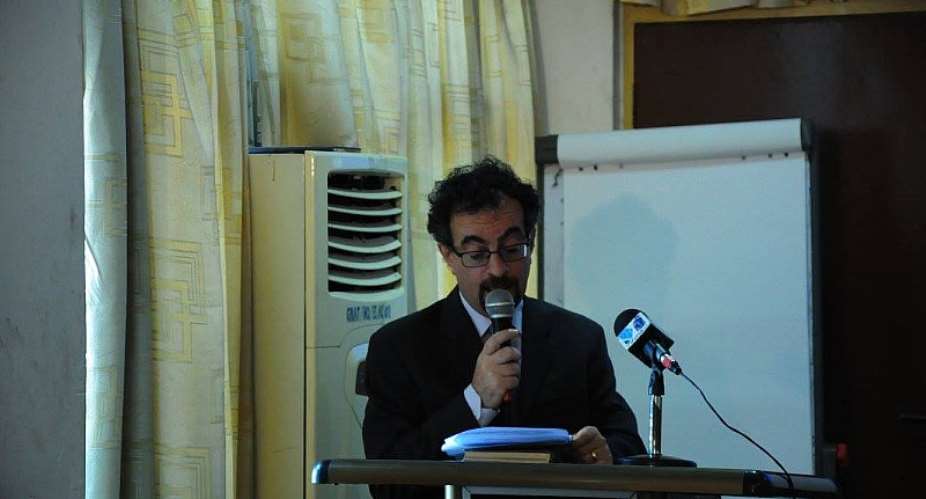The British High Commissioner to Ghana, Mr. Jon Benjamin, has said that investigative journalists have both a duty to hold those entrusted with the public trust accountable and a responsibility to act professionally when performing their important duty, which is crucially needed in a democratic society.
He said that investigative journalists have a duty to defend free speech, inform citizens, encourage deliberation on public policy issues and serve the public interest, noting that “these duties will sometimes require that journalists reveal criminal activity, investigate abuses of power, and expose wrongdoing.”
In order to discharge these responsibilities professionally, he advised that journalists must avoid conflict of interest situations, not be intimidated by power, and not serve special interests.
“Journalists should not be intimidated by power or influenced by special interests, advertisers, or news sources. The independence of journalism must not be compromised by conflicts of interest”, he emphasized.
The High Commissioner made these remarks when he opened a groundbreaking investigative journalism training workshop for practitioners in Ghana and the West Africa-Sub Region in Accra, Ghana, on Friday.
The workshop, which is under the theme “Investigative Journalism: From Exposure to Punitive Action” was organized by Tiger Eye Media and the Africa Center for International Law and Accountability (ACILA).
The key objectives of the capacity building training workshop are to equip participants with the knowledge and skills they need to enable them provide accurate and reliable information to the public, hold those entrusted with the public trust accountable, and contribute to the promotion of good governance, anti-corruption, rule of law, and human rights.
Some of the workshop outcomes include deepening the knowledge of participants in the theory and practice of investigative journalism, equipping them with the techniques and strategies of undercover and forensic investigations, as well as how they can conceive, design, develop, and execute investigative journalism projects from start to finish aided by case studies drawn from award-winning stories by Tiger Eye Media.
The 30 participants, who were selected through a competitive application process, will be in training for three days and will be given a field investigative journalism assignment which they are to complete in one month and return for review, publication, and certification.
The training comes nearly 14 years after the first investigative journalism training for 20 Ghanaian journalists was facilitated by Nyarko in 2002. The US Embassy provided the funds for the training in 2002; Tiger Eye Media and ACILA are funding the current training.
Anas and Nyarko were unanimous in their view that although donor support and funding would be helpful and enable them train and equip more investigative journalists in Ghana and the West Africa Sub-Region, the importance and timeliness of the training required that the training moved forward even without donor support, adding that individuals and organizations have to also invest in our democratic governance.





 We’ll no longer tolerate your empty, unwarranted attacks – TUC blasts Prof Adei
We’ll no longer tolerate your empty, unwarranted attacks – TUC blasts Prof Adei
 Bawumia donates GHc200,000 to support Madina fire victims
Bawumia donates GHc200,000 to support Madina fire victims
 IMF to disburse US$360million third tranche to Ghana without creditors MoU
IMF to disburse US$360million third tranche to Ghana without creditors MoU
 Truck owner share insights into train collision incident
Truck owner share insights into train collision incident
 Paramount chief of Bassare Traditional Area passes on
Paramount chief of Bassare Traditional Area passes on
 Two teachers in court over alleged illegal possession of BECE papers
Two teachers in court over alleged illegal possession of BECE papers
 Sunyani: Victim allegedly shot by traditional warriors appeals for justice
Sunyani: Victim allegedly shot by traditional warriors appeals for justice
 Mahama vows to scrap teacher licensure exams, review Free SHS policy
Mahama vows to scrap teacher licensure exams, review Free SHS policy
 Government will replace burnt Madina shops with a new three-story, 120-store fac...
Government will replace burnt Madina shops with a new three-story, 120-store fac...
